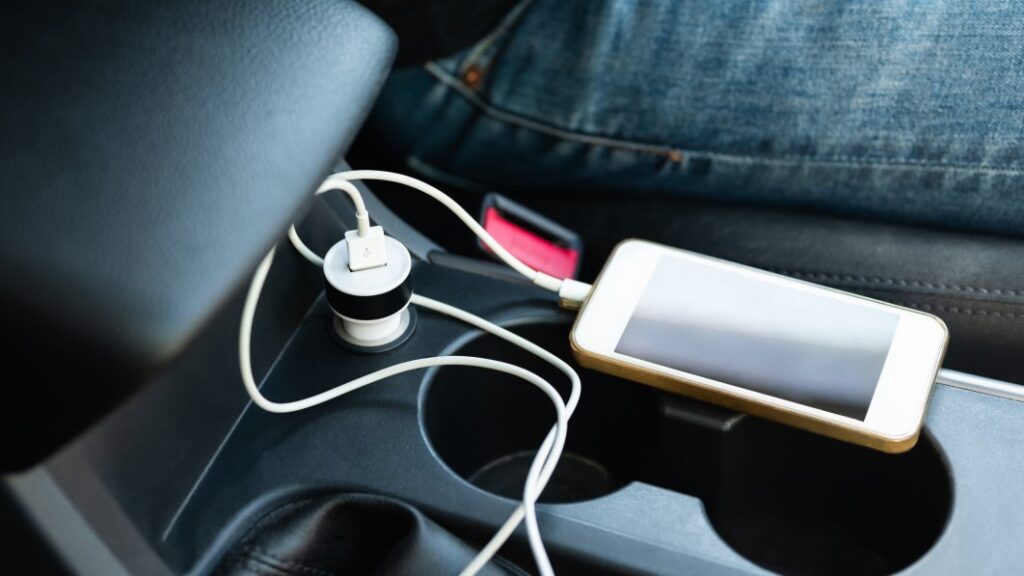Drivers are frustrated with cupholders, door handles, and horns that sound like 'clown cars'

Drivers of 2023 model-year cars are reporting more issues with cupholders.
Getty Images
An annual study by auto research firm J.D. Power found that the overall quality of cars declined.
Owners and lessees of 2023 model-year cars reported issues with basic features such as cupholders.
Part of the issue stems from automakers’ push to put more tech in vehicles, JD Power tells Insider.
Automakers are increasingly putting more tech in their new vehicles, but they can’t seem to get basic features such as cupholders, door handles, and car horns right, a study from auto research firm J.D. Power found.
Surveying more than 93,000 2023 model-year vehicle owners and lessees this year, JD Power’s Initial Quality Study found that the overall quality of vehicles decreased using the firm’s scoring system that calculates the “number of problems per 100 vehicles.” The higher the number, the worse the quality.
The study took responses from a 223-question survey conducted between February and May and calculated an average of 192 problems per 100 vehicles — a 12-point increase from 2022 and an 18-point increase from 2021.
Part of the problem can be attributed to automakers’ push to add more technology into their cars while compromising basic interior and exterior features, according to the study.
One issue centers on an unremarkable but — especially for U.S. drivers — an essential part of the vehicle: cupholders.
Consumers are reporting that cars are getting the sizes and locations of the cupholders wrong as “prime real estate” space inside the car is taken up with new features such as a wireless phone charging pad, Frank Hanley, senior director of auto benchmarking at JD Power, told Insider.
“(If) you try to add in this charging pad for the phone to sit in, you got to jostle with moving a gear selector and cupholders and small storage around,” Hanley said. “And there’s still USB ports and stuff, so how do you fit that into that area?”
Door handles are also becoming a new issue that once was a “non-discussion point — an aspect of a vehicle that had been examined, engineered, and mastered,” JD Power said in a press release. Car manufacturers are revisiting the design with “high-tech approaches,” the study said.
An example could be recessed door handles that sit flush with the body of the car and pop out when the driver approaches the vehicle, Hanley said. The feature is found in Teslas and other cars, and consumers have previously reported issues with the handle.
A retracting door handle on a Tesla.
Smith Collection/Gado/Getty Images
Part of the desire to redesign door handles is due to the shift to electric vehicles, Hanley said.
“They’re trying to make the vehicles as aerodynamic as possible because it helps with range … and door handles was one of those opportunities,” he said.
But consumers are finding that the design is not so intuitive.
“Door handles have been around since the car was invented and now, all of a sudden, they have these new executions that they gotta get used to,” Hanley said, adding that adults may be able to figure out how a new car door handle works but it may be more complicated for children.
Not all issues are related to the prioritization of technology in vehicles. Drivers also reported dissatisfaction with their car horns, the study found.
“Customers…they’re actually using words like ‘toy car’ and ‘clown car’ — it just doesn’t have this robust sound they’re expecting when they’re trying to warn somebody,” Hanley said, figuring that the changes could be a cost-saving measure.
And some technological aspects of new vehicles did improve from last year such as Android Auto and CarPlay, but it still remains “the most problematic area in the car,” according to Hanley.
Automakers aren’t entirely to blame for this push for more tech in cars. Features such as larger touch-screen infotainment systems are also now part of an increasing “customer expectation,” Hanley said. Manufacturers may just need time to figure out how to stick the landing.
“Adding new technologies can feel more problematic at first, so we’re definitely seeing that going on with the industry right now,” Hanley said.



